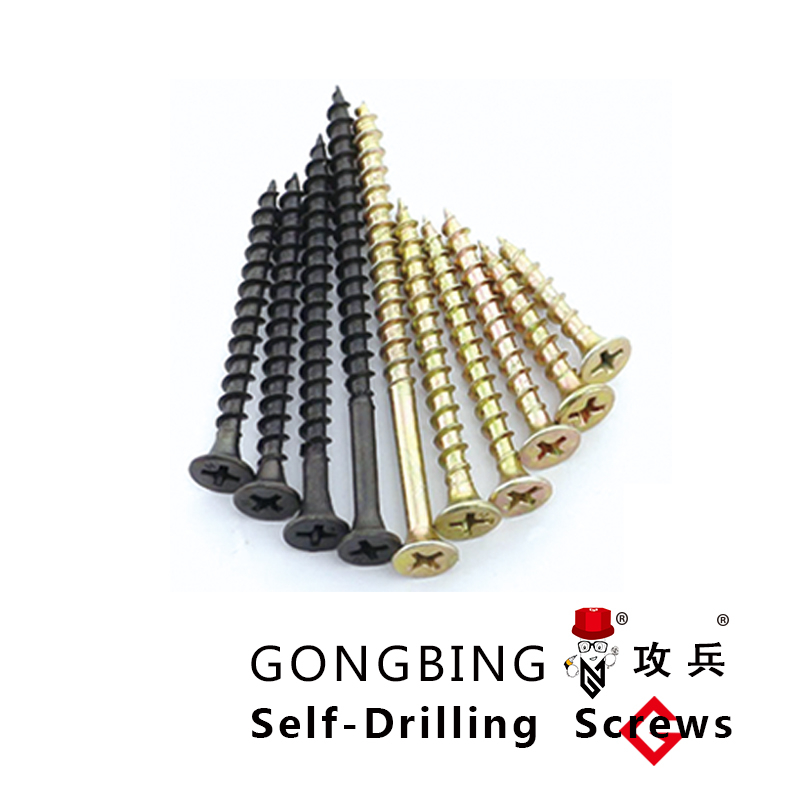Understanding Self-Tapping Screws and Bolts for Various Applications and Installations
Understanding Self-Screw Bolts Design, Function, and Applications
Self-screw bolts are essential components in the realm of mechanical engineering and construction. They serve as fastening elements that are specifically designed to provide a secure and reliable connection between various components. This article delves into the design, functionality, and various applications of self-screw bolts, highlighting their significance in modern engineering.
Design Principles
Self-screw bolts, commonly referred to as self-tapping or self-drilling screws, feature a unique design that allows them to create their own threads as they are inserted into materials. Unlike traditional bolts and screws that require pre-existing threads or nuts, self-screw bolts are engineered with sharp threads that cut into the material upon insertion. This design not only eliminates the need for pre-drilling in many applications but also significantly speeds up the assembly process.
Typically made from high-strength materials such as steel, stainless steel, or plastics, self-screw bolts can be engineered to resist corrosion and oxidation. They come in various sizes and shapes, with specific head designs (such as flat, pan, or hex heads) tailored for different applications. Additionally, some self-screw bolts may have specialized coatings to enhance their durability and resistance to wear and tear.
Functionality
The primary function of self-screw bolts is to fasten components together securely. When a self-screw bolt is driven into a material, it creates threads that grip the surrounding material tightly, ensuring a strong connection. As the screw is torqued, it pulls the materials together, preventing separation and maintaining integrity under stress.
One of the key advantages of self-screw bolts is their versatility. They can be used in a wide range of materials, including wood, metal, plastic, and composites. This adaptability makes them suitable for both lightweight applications, such as furniture assembly, and heavy-duty uses, such as automotive and aerospace manufacturing.
Types of Self-Screw Bolts
There are several types of self-screw bolts, each designed for specific applications.
self screw bolt

1. Self-Tapping Screws These screws have a pointed tip and are designed to create threads in a material without the need for pre-drilling. They are commonly used in softer materials like plastic and wood.
2. Self-Drilling Screws Equipped with a drill bit tip, these screws can bore into materials while simultaneously creating threads. They are particularly useful in metal applications, where traditional pre-drilling would be time-consuming.
3. Sheet Metal Screws Designed for fastening metal components, these screws feature sharp threads and a pointed tip, allowing them to penetrate metal sheets easily.
4. Concrete Screws Made for fastening into concrete, these screws have unique threading and coatings to withstand the harsh conditions associated with concrete materials.
Applications
Self-screw bolts are widely used across various industries. In the construction sector, they are integral to assembling frameworks, adding fixtures, and securing roofing materials. In the automotive industry, they are essential for joining different parts of a vehicle, contributing to the overall integrity and performance of automobiles.
Beyond construction and automotive applications, self-screw bolts are also prevalent in electronics, where they secure casings and internal components. The furniture industry relies on them for the assembly of items such as desks, chairs, and cabinets, allowing for quick and easy assembly.
Conclusion
In conclusion, self-screw bolts play a critical role in modern engineering and manufacturing. Their unique design allows for efficient fastening across a variety of materials, making them a preferred choice in numerous applications. Understanding their characteristics, types, and functions can significantly benefit engineers and manufacturers, ensuring that the right fasteners are utilized for specific projects. As industries continue to evolve, the demand for innovative fastening solutions like self-screw bolts will undoubtedly persist, driving ongoing advancements in design and functionality.
-
Weatherproof Plastic Expansion Anchors for OutdoorВестиJun.06,2025
-
Sustainability in the Supply Chain: Eco-Friendly TEK Screws ProductionВестиJun.06,2025
-
Load-Bearing Capacity of External Insulation FixingsВестиJun.06,2025
-
Double Head Bolts: Enhancing Efficiency in Industrial MachineryВестиJun.06,2025
-
Corrosion Resistance in Chipboard Screws: Coatings for Wholesale DurabilityВестиJun.06,2025
-
Butterfly Toggle Bolts : Enhancing Structural ResilienceВестиJun.06,2025
